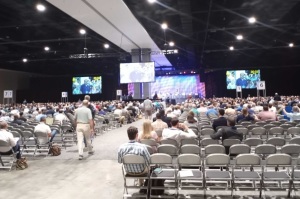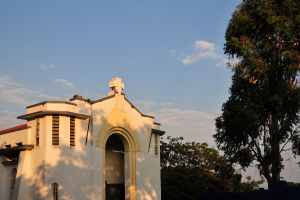Pope Francis calls for Gaza ceasefire, release of hostages in Easter message after meeting JD Vance

Update at 4 a.m. ET on April 21, 2025: Pope Francis has died on Easter Monday at 07:35 local time. The pontiff's passing has initiated traditional procedures within the Vatican for electing a new pontiff. His death followed a five-week hospitalization for pneumonia and marked the end of his significant pontificate, distinguished by repeated calls for global peace and compassion toward the suffering.
Original report:
Pope Francis called for an immediate ceasefire in Gaza and the release of hostages in his Easter Sunday message shortly after a brief meeting with Vice President JD Vance.
The Vatican announced that Francis met briefly with Vance on Sunday morning and offered the “Urbi et Orbi” blessing to the “city [of Rome] and to the World” while an aide read his address.
Francis' brief meeting with the vice president involved an exchange of Easter greetings and gifts, with the pontiff presenting Vance with three Easter eggs for his children, The Wall Street Journal reported.
Vance’s brief exchange with the pope was crucial due to recent public disagreements between the Vatican and the Trump administration over U.S. immigration policies. Francis had publicly criticized President Donald Trump’s deportation of criminal illegal immigrants, which he claimed “damages the dignity of many men and women.” Trump administration officials reacted strongly, with border czar Tom Homan advising the pope to focus solely on church matters.
Despite the earlier tensions, the pope’s meeting with Vance reflected an effort by both the Vatican and the White House to ease diplomatic friction. Vance, who converted to Catholicism in 2019, had publicly stated he did not intend to dispute religious interpretations with the pope, while expressing surprise over the pope’s criticism of U.S. immigration policy.
Earlier this year, Francis addressed Vance’s interpretation of the theological concept “ordo amoris” — the order of love — used by Vance to support prioritizing immigration policies favoring citizens over migrants. The pope rejected Vance’s stance, stating in a letter to U.S. bishops that true Christian love builds fraternity without any exclusions, likening it to the parable of the Good Samaritan.
The previous day, Vance had a longer meeting with Cardinal Pietro Parolin, the Vatican Secretary of State, described by the Vatican as a cordial discussion covering immigration and other pertinent topics.
Vance’s visit to Rome included diplomatic engagements with Italian Prime Minister Giorgia Meloni, who maintains close ties with the Trump administration. Meloni, viewed favorably by the U.S. government, hosted Vance warmly, reflecting efforts to bolster trans-Atlantic relations amid recent tensions between Trump and European allies over trade tariffs.
The vice president’s European trip marked his first since publicly criticizing European governments in February at the Munich Security Conference.
Speaking from St. Peter’s Basilica after meeting with Vance on Easter Sunday, the pope appealed specifically for peace in Gaza, urging an immediate ceasefire and the release of hostages, according to Vatican News.
Archbishop Diego Ravelli read the pope’s prepared remarks, as the pontiff continues to recover from bilateral pneumonia. Francis expressed deep concern for the region, describing Gaza as enduring “the terrible conflict [that] continues to cause death and destruction and to create a dramatic and deplorable humanitarian situation.”
The pope’s Easter address included other regions suffering conflict, including Ukraine, Sudan, Syria, Yemen and the broader Middle East.
Francis called explicitly for a “just and lasting peace” in Ukraine, a nation devastated by war, and invited all involved parties in Yemen to pursue a constructive dialogue to resolve one of the world’s worst humanitarian crises.
His message also included prayers for reconciliation between Armenia and Azerbaijan in the South Caucasus and called for calm amid rising tensions in the Western Balkans.
Francis reiterated his longstanding message of compassion toward migrants and marginalized groups, decrying “contempt” toward vulnerable individuals. He urged political leaders to replace investments in weaponry with resources directed toward alleviating hunger and promoting development.





























